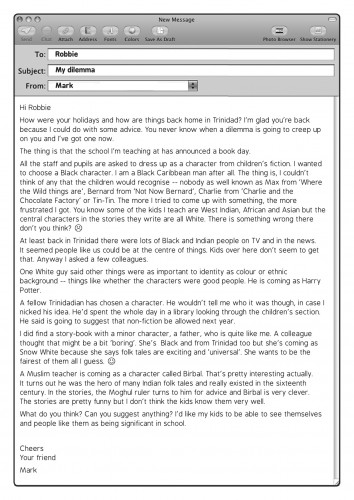World Book Day is one of the highlights of the school year, with children and teachers dressing up as their favourite characters. But what if, as a black or minority ethnic teacher or child, you find you have to dress up as a white character in order to for most people to recognise who you are?
Darren Chetty, of University College London, has created a set of resources based on race, identity and representation in children's literature. Discussions around race, identity, and representation are sometimes avoided and Darren provides an in-depth discussion plan with initial questions to consider, opening activities, activities, and potential questions for class discussion. The resources can be used with children or as a stimulus for professional conversation and facilitating discussions with other teachers.
‘Mark’s Dilemma’ is based on real-life conversations in a primary school in London, UK. Mark has recently been informed of a book day coming up at the school at which he teaches. As a Black Caribbean man, he wishes to dress as a black male character, but is struggling to find one that his pupils will recognise from the pages of a popular book. The resource is written from the perspective of Mark but a number of different perspectives are represented in the email that reflect real-life positions on race, identity, and representation.
Mark's Dilemma Discussion Plan (PDF)
Mark's Dilemma Discussion Plan (Word)
A child-led version of this resource, which can be read and discussed by a learner working alone, with siblings or with a parent, can be downloaded here.
With thanks to Christian Albert and Steve Williams.
If you'd like to correspond with Darren about his work, contact him @rapclassroom on Twitter. You can find his other work at linktr.ee/DarrenChetty
Darren has also written an article titled "The Elephant in the Room: Picturebooks, Philosophy for Children and Racism." This thoughtful piece won the biennial "Award for Excellence in Philosophy for Children" from the International Council for Philosophical Inquiry with Children (ICPIC) in 2013.
